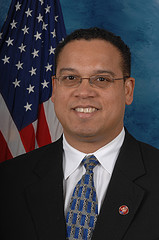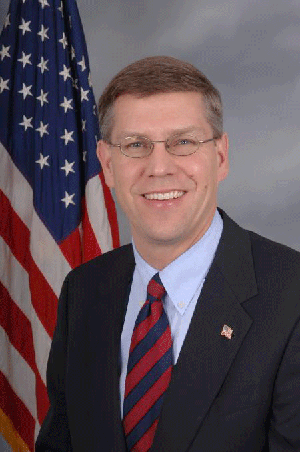Earmark in big spending bill provides $250,000 for caregiver coaching
By ERIN ELLIOTT BRYAN /Â Community News Editor
When President Barack Obama signed the Consolidated Appropriations Act of 2010 on Dec. 17, Jewish Family and Children’s Service of Minneapolis (JFCS) received $250,000 to fund services for caregivers in the local community.
Among the spending bills included in the act was one for Labor, Education, and Health and Human Services. The JFCS earmark is included there as part of the Administration on Aging.
According to Mari Forbush, chief operating officer at JFCS, the agency will use the money to tap into the new area of caregiver coaching through its Family Caregiver Access Network (FCAN).
“In our [L’Chaim] Senior Services program, we serve almost 600 clients and of those 600 clients, over 500 of them have a caregiver,” Forbush said. “The case managers see how a caregiver declines by the stressors that are placed on the caregiver.”
With the federal funding, JFCS will offer community education resources for caregivers and work with its network of congregational nurses to identify when caregivers may need additional support services.
JFCS will also train a caregiver coach, who will work with caregivers in implementing those support services and helping them to understand the progress of their loved one’s care.
“The model here is, let’s help older adults stay independent in their own homes as long as possible,” said Ethan Roberts, director of the Twin Cities Jewish Community Government Affairs Program, which worked closely with JFCS throughout the application process. “Part of helping people stay independent is helping care for their caregivers.”
U.S. Reps. Erik Paulsen and Keith Ellison played a critical role in incorporating the funding request into the appropriations bill. Sen. Al Franken also supported the funding when he arrived in Washington, D.C., in June.
“This has been a wonderful partnership with JCRC and Ethan, and us, and also our representatives and Sen. Franken, who have really stepped up to make this a priority for them and get this money in our community to help seniors,” Forbush said.
Ellison told the AJW he was proud to support the program.
“JFCS does a tremendous amount of good for families in the community and the grant is going to be very competently administered,” Ellison said, in a phone interview from his Washington office this week. “And it’s needed. In this time of economic downturn, the pressure on basic services is stronger than ever before. I was happy to do it.”
Paulsen said he hoped the JFCS program would be replicated across the country.
“Jewish Family and Children’s Service has continuously been a leader and innovator in the area of family caregiving, a service that is becoming increasingly important to families and communities across the nation,” Paulsen said. “At a time when we are looking for ways to provide more cost-effective care, I am confident the success of this program could serve as a national model in the future. I was proud to help secure this important funding.”
 Rep. Erik Paulsen
Rep. Erik Paulsen
According to Forbush, a spouse or adult child provides 91 percent of long-term care in Minnesota. But family caregivers are often faced with a unique set of issues — additional stress at work, a change in family dynamics and their own health.
“For a long time, case management services have been focused on the care recipient,” Forbush said. “What often happens if the caregiver doesn’t get some kind of support, they end up also losing their ability to care for the care recipient.”
And when those stressors add up, family support can decrease. Forbush said that for every 1 percent decrease in family support, it costs an additional $30 million per year in public funding — through skilled nursing care, the employ of personal care attendants or Medicaid subsidies.
Forbush said the federal funding would have a great impact for individuals, families and the state of Minnesota.
“I think it gives people a higher quality of life,” Forbush said. “They are able to stay in their homes longer, so therefore it saves public funding. Even a six-month delay in institutional placement is a huge savings for our state.”
The caregiver coach will be a case manager who has undergone additional training. JFCS plans to develop a training curriculum for additional caregiver coaches, which can be used in other communities.
The caregiver coach will visit caregivers in their homes and work with them to provide the unique services he or she may need.
“We will work with every individual and family to design something that works for them,” Forbush said. “If it’s something we do have, we’ll try and figure out how to provide it or find another organization that does it.”
Although the funding has been earmarked for JFCS, the agency still must fill out a lengthy application detailing how the funds will be used. The program will begin when the money is received from the Administration on Aging.
“As soon as we get our funding, we’re ready to hit the ground running,” Forbush said.
This is the third federal grant that the local Jewish community has received in the last three years. JFCS received $198,000 for its Naturally Occurring Retirement Community (NORC) for fiscal year 2008, and Jewish Family Service of St. Paul (JFS) received $238,000 for its NORC for fiscal year 2009 (3-27-09 AJW).
(American Jewish World, 12.25.09)










 Rep. Erik Paulsen
Rep. Erik Paulsen









